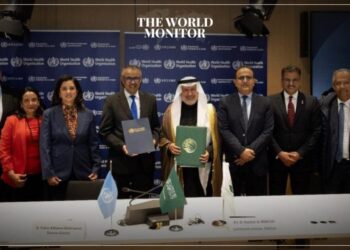Nigeria has launched new initiatives to boost investment in its oil and gas industry, according to an announcement by President Bola Tinubu.
On Wednesday, he enacted executive orders that provide tax incentives for specific onshore and shallow-water projects and simplify the process for contract approvals, as detailed in a government statement on X. These initiatives also enforce certain requirements for local participation.
As the leading oil producer in Africa and a member of the Organization of the Petroleum Exporting Countries (OPEC), Nigeria is keen on enhancing its oil sector.
The nation celebrated the commencement of the Dangote oil refinery, Africa‘s largest, near Lagos earlier this year.
Additionally, Nigeria’s government-run oil corporation is advocating for an extra production line at its LNG facility.
Despite these developments, the country’s oil and gas sector has seen a decline in investments.
Major oil companies are withdrawing from onshore and shallow-water fields due to issues such as theft, vandalism, and legal challenges over environmental damage, which have hampered production.
The recent incentives aim to rectify deficiencies in the pivotal 2021 petroleum legislation. They introduce a “25% gas utilization investment allowance for new and existing midstream projects” and strategies to bolster oil and gas investments in deepwater areas.
Furthermore, the government intends to increase the minimum approval limits for production-sharing contracts and joint ventures to $10 million.
Earlier this year, the Dangote Group, owned by Africa’s richest man, announced the commencement of production at Africa’s largest diesel and jet fuel refinery. The company described this development as “a great day for Nigeria.”
The Dangote refinery, with a capacity of 650,000 barrels per day, is poised to end Nigeria’s reliance on imported fuel when operating at full capacity.
The company, owned by Nigerian billionaire Aliko Dangote, expressed hopes of introducing the refinery’s products to the market this month.






